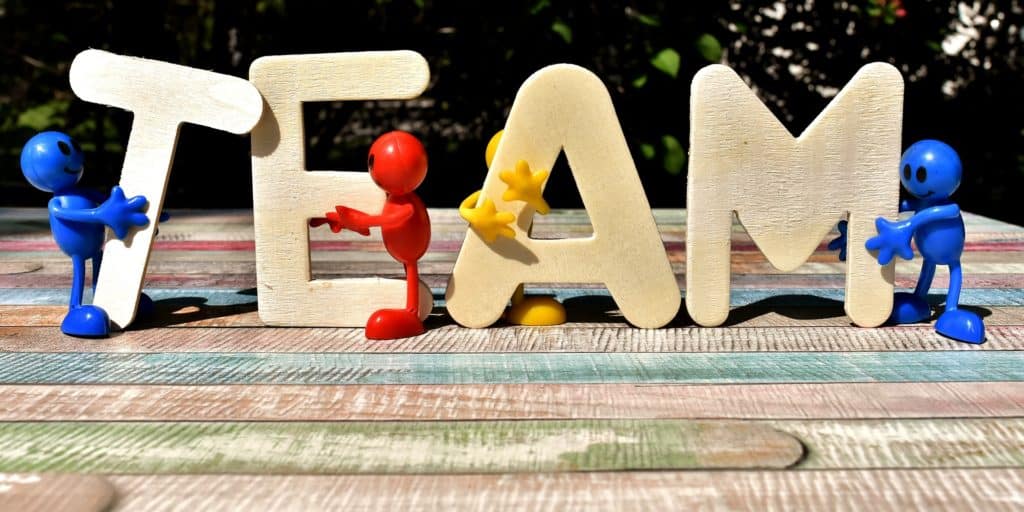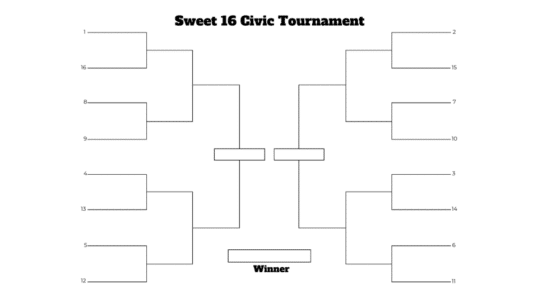
Alexas_Fotos via pixabay
Professor Dan Kunich taught a class in the Landscape Architecture program. The class involved a team approach to the introduction to design principles. Students were engaged in a number of in-class activities employing the principles. Students were placed in small teams that would work together for the entire semester.
The university had taken to heart the growing chorus of appeals to improve students’ collaborative skills. Increasing numbers of employers were pointing to the need for graduates to learn how work effectively in teams. The university required every major to have a course that focused on team skills. Kunich’s course was the one chosen for the Landscape Architecture program.
“Throughout this semester, I’ll be evaluating you as a team”, began Kunich. “Part of the evaluation will be your work product. But part of it will also be evaluating how well you work together as a team. Let me share with you the stages of team development so you can think about whether and how your team is making progress.
“The first stage of team development is called the Chaos Stage. This is when you’re just getting to know each other. You start with very little idea of how to work together. You haven’t set up any team norms or guidelines. Your discussions lack focus. I suspect that all of you have experienced this in other classes. Maybe you never got beyond this stage in the past. But, my expectation is for you to move beyond this stage by the end of the second week of classes.
“The second stage of team development is called the False Team stage. You’ve made it beyond the Chaos Stage, but your discussions and work products are still falling short. The main reason is that you don’t know how to discuss issues in a collaborative way. In most cases, some of you will be afraid to speak up because you don’t want to be embarrassed. Others may dominate the discussion. You really aren’t having productive discussions because you aren’t bringing everyone in. The work product will still fall short. I expect you to move beyond this stage by the end of the forth or fifth week. But some people never get beyond this stage if they’re not serious about how their team is working.
“The third stage is called the Breakthrough Stage. In this stage the quiet team members have lost their fear of speaking up and the talkative folks have realized they have to listen more and talk less. As a result, the work products improve greatly. In this stage, you are building upon each other’s ideas and generating really creative possibilities. I hope every team gets to this level, but that will require dedication of every team member. I suspect that less than half of the teams will get to this stage.
“The final stage is called the True Team Stage. Honestly I won’t be able to tell if you get to this stage because the validation of a True Team usually takes longer than one semester. True Teams typically remain together over months and years. The reason why this class is taught in the sophomore year is that we hope you will form lasting bonds and support each other in future classes and beyond. You need supportive friends to survive in this major, and we hope you will become a True Team. While all of you may not stay together as a team, I hope that you will remain close to some of your teammates. I’ve even had teams remain close long after graduation.
“As you can see, this is not a normal class. While our focus will be on landscape architecture principles, a dual focus will be on relationship building and developing your teamwork skills. You need both of these in your career to be successful.”
For more classroom activities focused on developing collaborative skills, check out the Toolkit at the heart of the Interactivity Foundation’s Collaborative Discussion Project.
* * *
“After mutual respect and understanding are achieved, it is possible to establish real, sincere relationships, which is the foundation of a solid long-term collaboration.” Ron Garan (NASA Astronaut)
This post is part of our “Think About” education series. These posts are based on composites of real-world experiences, with some details changed for the sake of anonymity. New posts appear Wednesday afternoons.



